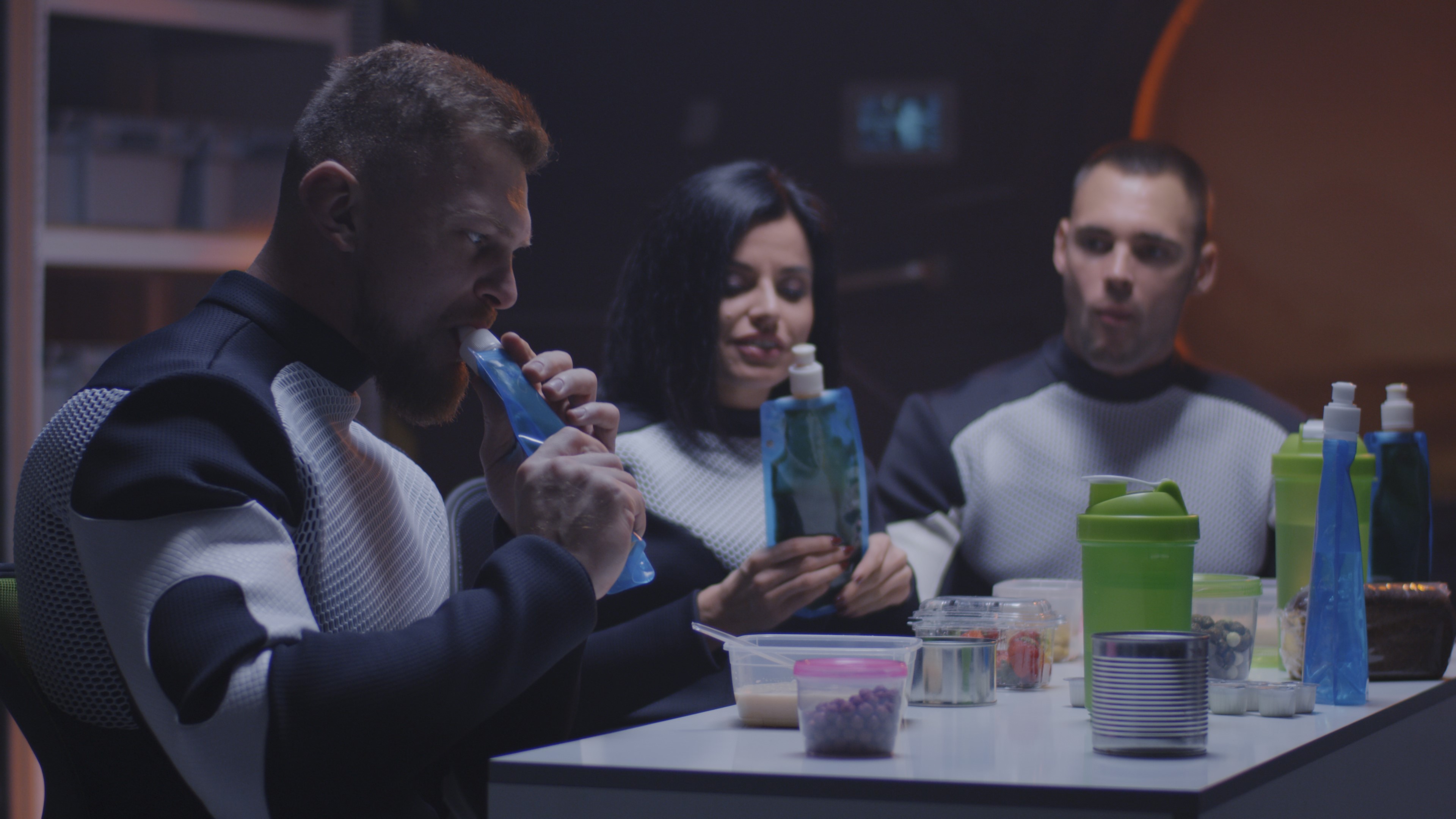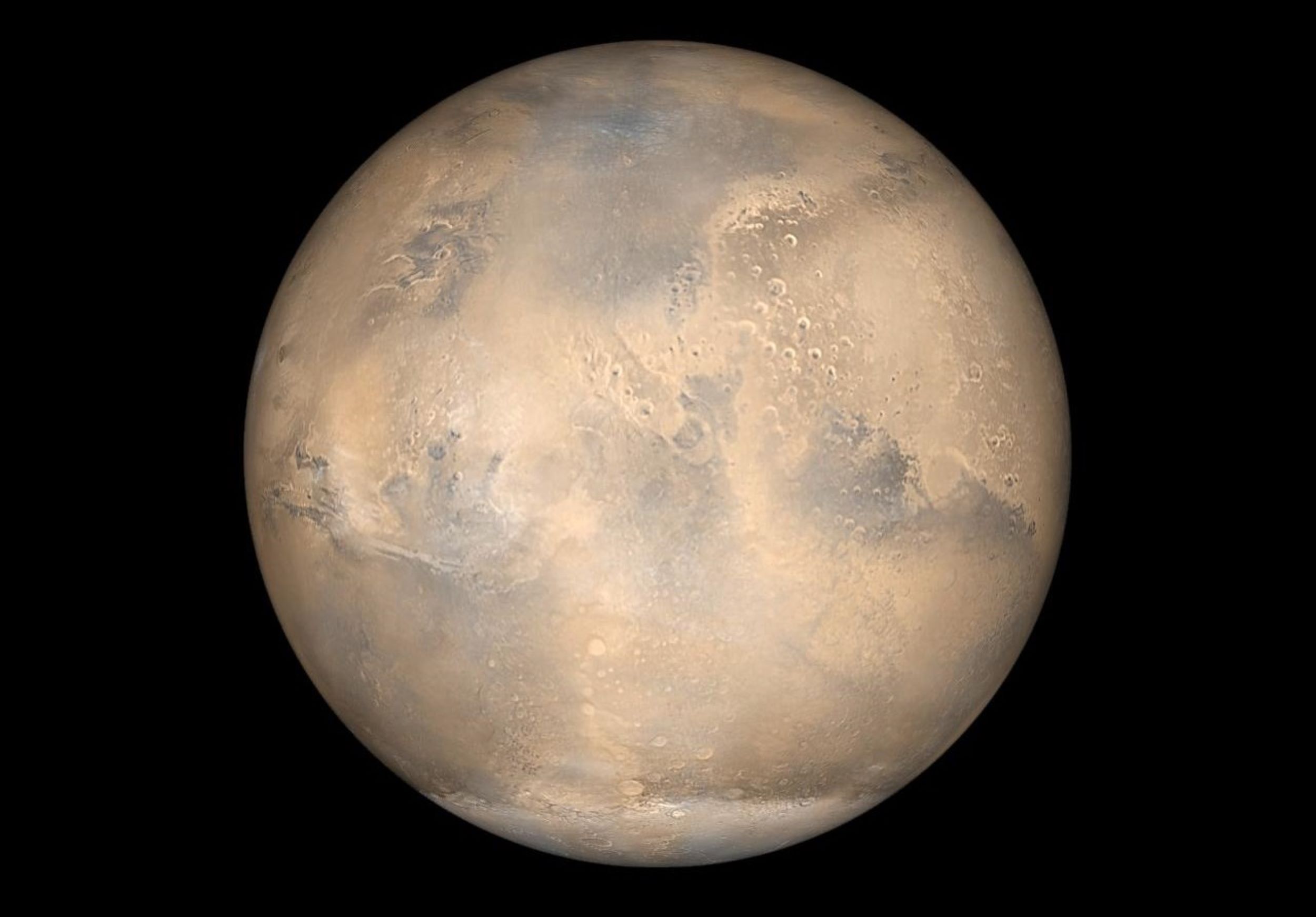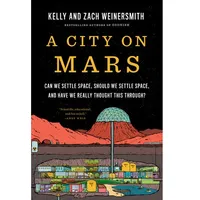'The forbidden space meal': What happens if you need to be a cannibal on Mars?
"In the wrong circumstances, a spacecraft is a platform full of hungry people surrounded by temptation. Is it wrong to waste such a neatly packaged meal?"
Get the world’s most fascinating discoveries delivered straight to your inbox.
You are now subscribed
Your newsletter sign-up was successful
Want to add more newsletters?

Delivered Daily
Daily Newsletter
Sign up for the latest discoveries, groundbreaking research and fascinating breakthroughs that impact you and the wider world direct to your inbox.

Once a week
Life's Little Mysteries
Feed your curiosity with an exclusive mystery every week, solved with science and delivered direct to your inbox before it's seen anywhere else.

Once a week
How It Works
Sign up to our free science & technology newsletter for your weekly fix of fascinating articles, quick quizzes, amazing images, and more

Delivered daily
Space.com Newsletter
Breaking space news, the latest updates on rocket launches, skywatching events and more!

Once a month
Watch This Space
Sign up to our monthly entertainment newsletter to keep up with all our coverage of the latest sci-fi and space movies, tv shows, games and books.

Once a week
Night Sky This Week
Discover this week's must-see night sky events, moon phases, and stunning astrophotos. Sign up for our skywatching newsletter and explore the universe with us!
Join the club
Get full access to premium articles, exclusive features and a growing list of member rewards.
Humans are forever venturing deep into the unknown, pushing the boundaries of our physical limits in pursuit of adventure. The next frontier for humanity is space — but just like exploring on Earth, not all expeditions go to plan. And when something does go wrong, we are faced with the same ethical dilemmas as generations of explorers before us have done.
In this excerpt from "A City on Mars: Can we settle space, should we settle space, and have we really thought this through?" (Penguin Random House, 2023), which was the winner of the prestigious 2024 Royal Society Trivedi Science Book Prize, wife and husband Kelly and Zach Weinersmith look at the terrifying situation that would have us serving up the "forbidden space meal" — other humans.
What do you do when someone dies in space? We'd love to tell you, but there's not really precedent. Death among spacefarers has always been rapid and always consumed whole crews, so there's never been a situation where a few astronauts gather round a lost companion wondering what the appropriate mode of disposal is.
The result is that, aside from informing you that if you flushed them out the airlock they should be registered as a satellite (thanks, Registration Convention!),* we can say very little.
So while we had to drop a planned section on death in space, we did get interested in a related question while researching space food: the forbidden space meal. The one option on a long Mars trip that is extremely fresh and contains precisely the nutrients a human body needs.
We're just going to be real with you here — the astronautical literature on how to eat the crew is pretty limited. The reader of NASA's Human Integration Design Handbook will search for "human flesh" in vain. Apparently "human integration" is used in a narrow sense.
Get the world’s most fascinating discoveries delivered straight to your inbox.
But we did locate a self-published paper — dare we say an overlooked classic — on the topic: "Survival Homicide in Space" by Robert A. Freitas, 1978, which may provide the needed insight. What's survival homicide? It's a situation where someone or some group can survive only by killing.
The classic example is the "Law of the Sea." The one that says you draw straws and the person who draws the short one gets eaten. Freitas doesn't mention the dinner aspect of space murder, but he does posit a scenario inspired by the novel "Marooned," in which three astronauts are trapped in a capsule without enough oxygen. Due to the precise data available to the spacefarers, they know they have enough oxygen for only two to survive until rescue comes. Logically, one should die.
And logically, we can extend the scenario to the forbidden meal by imagining your cricket herd have all died and you're running out of delicious food cubes. Can you kill one of the crew? According to Freitas, the Outer Space Treaty actually provides something of an answer. Under Article VIII, jurisdiction goes to the state of registry. Different nations have different rules regarding the "law of necessity,"** so really you just need to know what the relevant legal code permits. If you're in a Canadian ship, get a Canadian judge on the line and explain about the people-meat.
We don't need space cannibalism and an international incident.
But what if you have options? Writing from 1978, this wasn't in the cards — at that time Skylab was long uncrewed and the Shuttle not yet flown. The only space crews were in Soviet ships with largely Soviet crews launched from Soviet territory.
What Freitas couldn't anticipate was the future International Space Station, which has conjoined sovereign territories from many nations. In principal you could shop around for the nation with the most cannibalism-friendly laws, but your best bet is probably to eat a fellow national inside a module owned by the nation you come from.
We don't need space cannibalism and an international incident.
Or just do nothing. In a real Mars settlement faced with a situation like in Marooned, the likeliest outcome is that you'll just die. Freitas gives a litany of times people could've prolonged their lives by ending others — in sunken submarines, collapsed coal mines, and in boats adrift. Typically, they chose to face the end together. It turns out most of us would rather die than kill.
But we did find one exception.
Professor, prolific author, and triathlete, Dr. Erik Seedhouse wrote an analysis of space cannibalism in "Survival and Sacrifice in Mars Exploration." We don't know Mr. Seedhouse personally, and he didn't respond to our email, but we will note that his book's index contains precisely one entry on "behavioral challenges," a very important topic, but five entries on the gustatory mode of crew integration.
Seedhouse asks: "Imagine you're stranded on the Red Planet with three crewmembers. You have plenty of life-support consumables but only sufficient food to last one person until the rescue party arrives. What do you do?... One day, while brewing coffee for breakfast, you realize there are three chunks of protein-packed meat living right next to you."
He argues that the largest people should sacrifice themselves first, since they both consume and provide the most food. We don't know where Seedhouse would fall in the buffet line because we couldn't find his height and weight online, and honestly we're scared to ask.
Mostly because his book includes a weirdly detailed look at how to butcher Homo sapiens. Also, on page 144, the reader will find a photo of ten astronauts floating happily in space, with the caption: "In the wrong circumstances, a spacecraft is a platform full of hungry people surrounded by temptation. Is it wrong to waste such a neatly packaged meal?"
That is, as they say, a question for philosophers. But we do have one pragmatic piece of advice for any potential Mars settler: Leave Erik Seedhouse at home.
*Though they probably wouldn't be a satellite for long. In Terry Virts's memoir, he notes that if you had to have this sort of "burial at sea," astronauts would likely direct their deceased crewmate's remains toward the Earth, so they'd burn up in the atmosphere in the not-too-distant future.
**We elected not to get too in the weeds about exactly what the standards are, but for the future law students in the audience, the two most relevant cases are Regina v. Dudley and Stevens as well as United States v. Holmes. We've been told these are both used to trick law students into thinking law school will be interesting.
An excerpt from A City On Mars: Can We Settle Space, Should We Settle Space, and Have We Really Thought This Through? by Kelly and Zach Weinersmith, published by Penguin Press, an imprint of Penguin Publishing Group, a division of Penguin Random House, LLC. Copyright © 2023 by Kelly Weinersmith and Zach Weinersmith.
A City on Mars: Can we settle space, should we settle space, and have we really thought this through? - $28.80 at Amazon
Critically acclaimed, bestselling authors Kelly and Zach Weinersmith set out to write the essential guide to a glorious future of space settlements, but after years of research, they aren’t so sure it's a good idea. Space technologies and space business are progressing fast, but we lack the knowledge needed to have space kids, build space farms, and create space nations in a way that doesn’t spark conflict back home. In a world hurtling toward human expansion into space, "A City on Mars" investigates whether the dream of new worlds won’t create nightmares, both for settlers and the people they leave behind.
The Weinersmiths, a wife-and-husband research team, cowrote the New York Times bestselling popular science book Soonish, a Wall Street Journal and Popular Science book of the year. Dr. Kelly Weinersmith is an adjunct faculty member in the BioSciences department at Rice University. Her research has been featured in The Atlantic, National Geographic, BBC World, Science, and Nature. Zach Weinersmith makes the webcomic Saturday Morning Breakfast Cereal. He illustrated the New York Times bestselling Open Borders: The Science and Ethics of Immigration, and his work has been featured in The Economist, The Wall Street Journal, Slate, Forbes, Science Friday, Foreign Policy, PBS, and elsewhere. The Weinersmiths live on an old farm in Virginia with their two children.
 Live Science Plus
Live Science Plus













